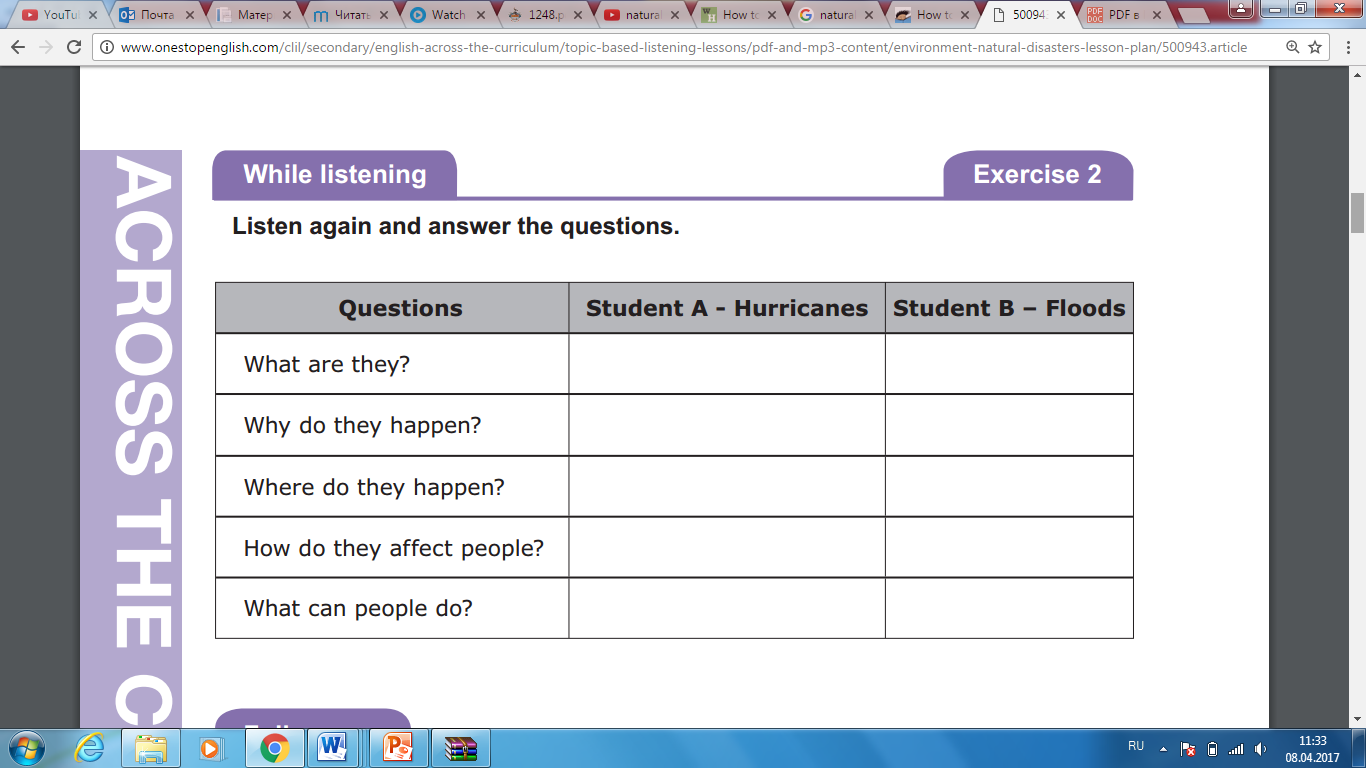| The main part of the lesson Teacher suggests listening activity to the learners. While listening 1 Teacher divides class into two groups A& B. 2 Teacher takes group A to one classroom &group B to a different classroom (orif working with another teacher/classthen swap half your class with eachother). 3 Teacher hand out the worksheet and tellgroup A to complete the box abouthurricanes and group B to complete the box about floods. 4 Teacher encourage learners to work inpairs within their groups. 5 Teacher monitor and help where necessary. 6 Next, teacher explains that they will listen to arecording about hurricanes or floods(depending on which group they arein) and they should tick one of theirwords they hear. 7 Teacher plays the recordings once and then getthe learners to compare the wordsthey heard. Task: Student A Listen to track 1. You will hear about hurricanes. Write down 4 words you think you will hear. Student B Listen to track 2. You will hear about floods. Write down 4 words you think youwill hear. Answersmay vary: Tropical storms, strong winds, typhoons, river, lake, ocean etc. Listening Task 2 1 Teacher hands out the worksheets and asks thelearners to read the questions. 2 Teacher puts the students in pairs (they shouldstill be in their groups A & B) and tellthem to discuss each question. 3 Teacher plays the recordings (so that groupA listen to the recording abouthurricanes and group B the one about floods) and get the learners tocomplete their column of the chart. 4 Teacher putslearners in pairs and get them tocompare their answers. 5 Teacher plays the recording again if necessary. 6 Next, teacher brings the two groups togetherand pair up the students so that onelearner A is working with one learnerB. 7 Teacher tells the learners to tell their partnerthe answers to the questions for thenatural disaster they listened to andto complete the other column in thechart. 8 Monitor and help where necessary. 9 Finally, check the answers as a class. Task: Listen again and answer the questions.
Questions Student A - Hurricanes Student B – Floods What are they? Why do they happen? Where do they happen? How do they affect people? What can people do? Answers: 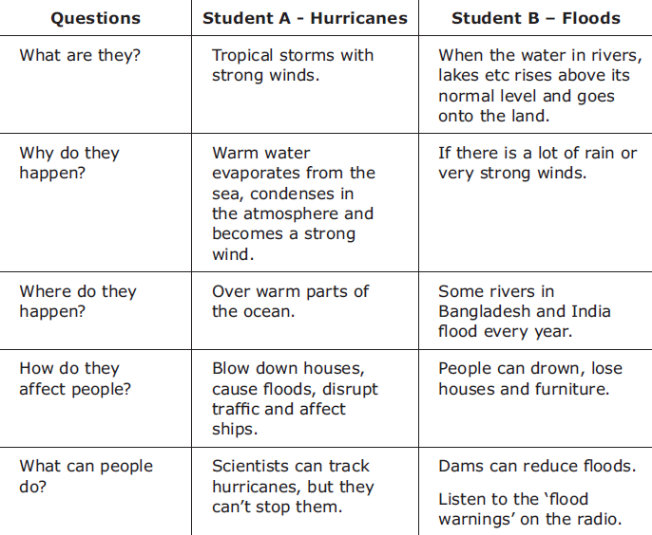
Follow up task:
Match the words to the correct definition. Blow down (v) Condense (v) Dam (n) Disaster (n) Disrupt (v) Drown (v) Evaporate (v) Reduce (v) Shock (n) Warning (n)
A statement telling people of a possible problem or danger A very bad event that causes lots of damage or kills a lot of people A wall built across a river to stop the water Something bad that happens unexpectedly and surprises you The process when a gas changes into a liquid The process when a liquid (e.g. water) changes into a gas To go under water and die To interrupt or prevent something from continuing To make something smaller or less in size When a strong wind makes something fall over
Answers: Blow down (v) - j Condense (v) - e Dam (n) - c Disaster (n) - b Disrupt (v) - h Drown (v) - g Evaporate (v) - f Reduce (v) - i Shock (n) - d Warning (n) – a
Differentiation: Task for less able learners (G) Teacher suggests developing speaking on topic Natural disasters: “How to Survive a Hurricane?”In a group make a cluster based on previouslistening task. Using new words, prepare the information clearly to other groups. Check that you have met all the assessment criteria. Prepare a cluster on an A3 paper (using different colours and fonts). Example: 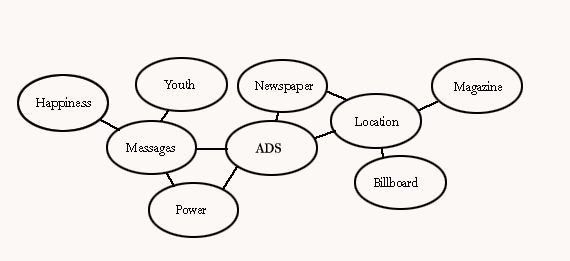
Task for more able learners:
Teacher suggests developing speaking on topic Natural disasters: “How to Survive a Flood?”In a group make a brochure based on previouslistening task. Using new words, prepare the information clearly to other groups. Check that you have met all the assessment criteria. Prepare your brochure on an A3 paper (using different colours and fonts). Example: 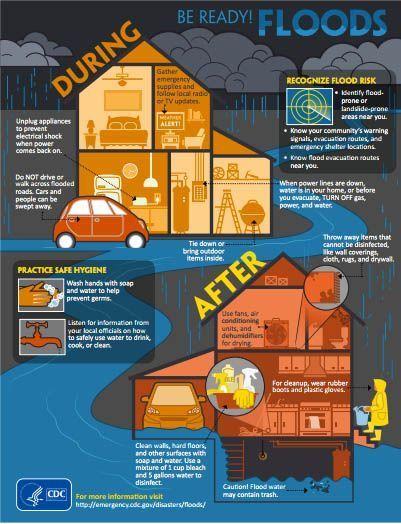
| 


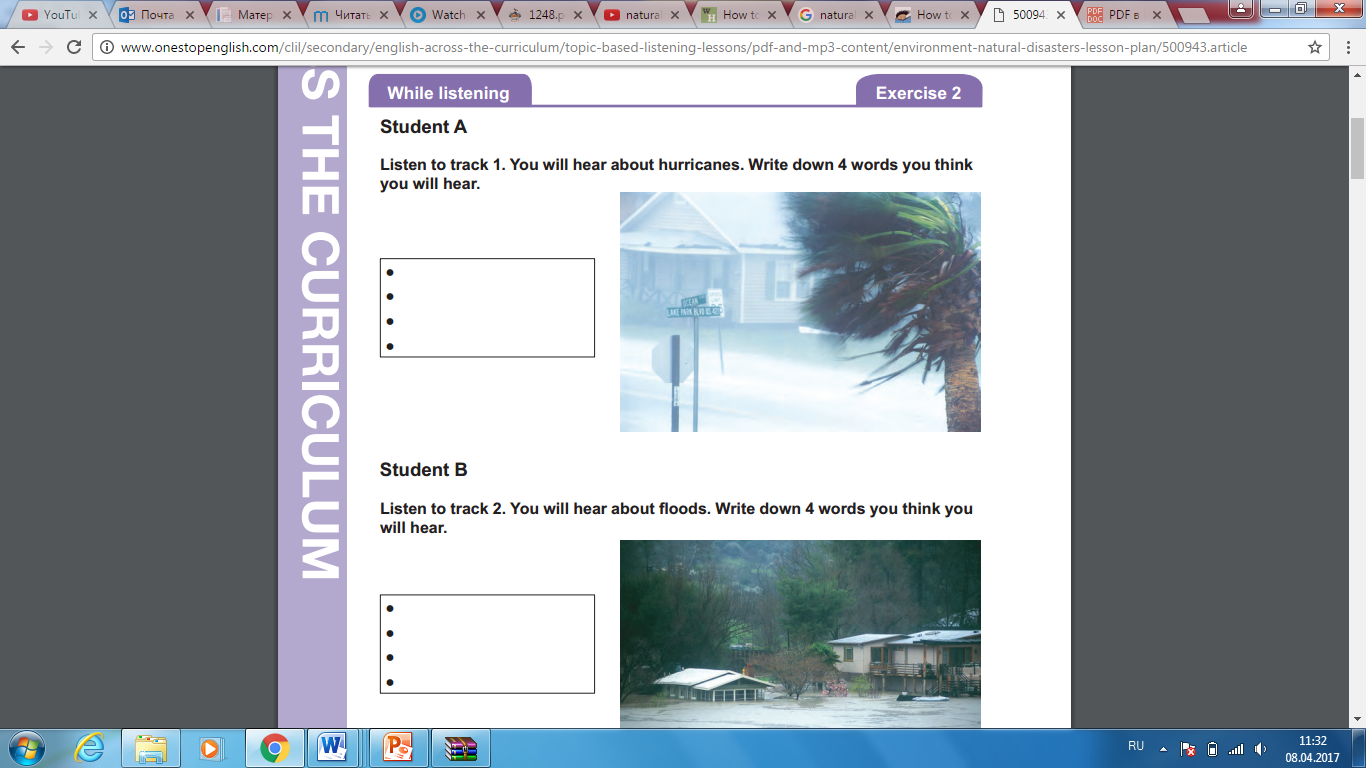 \
\